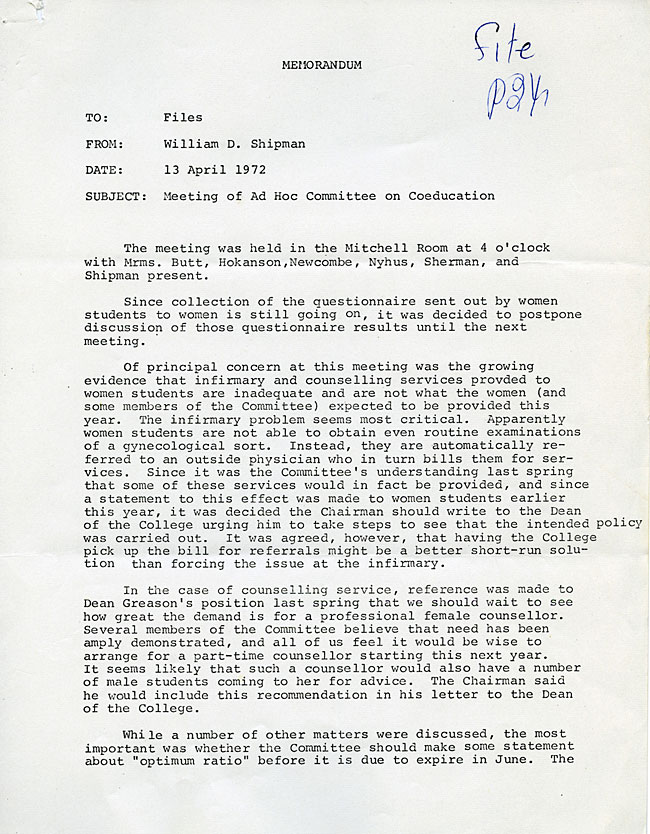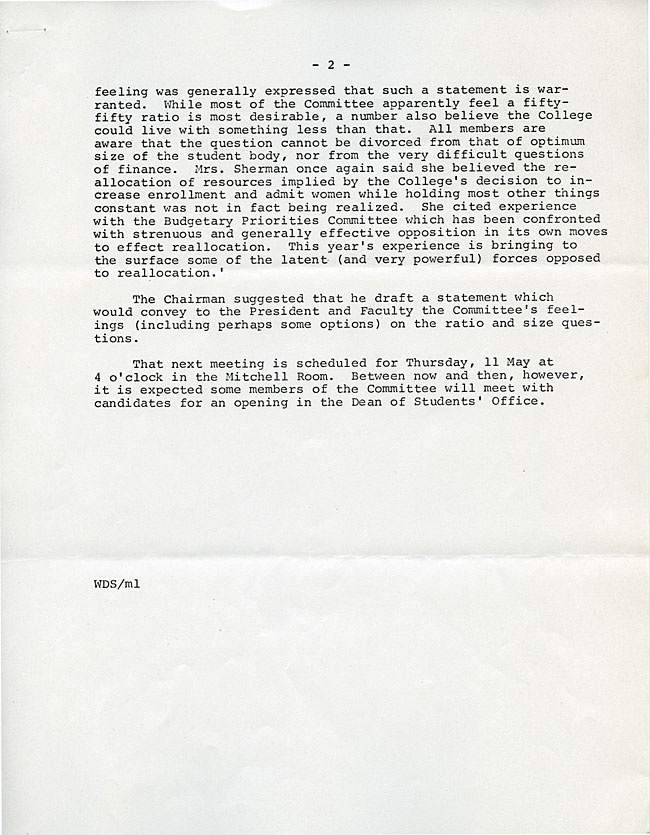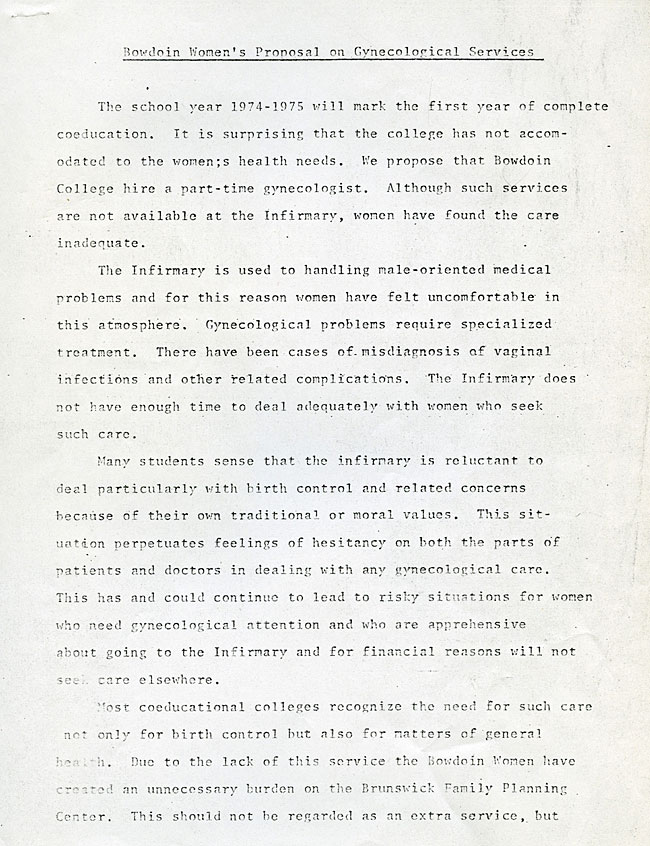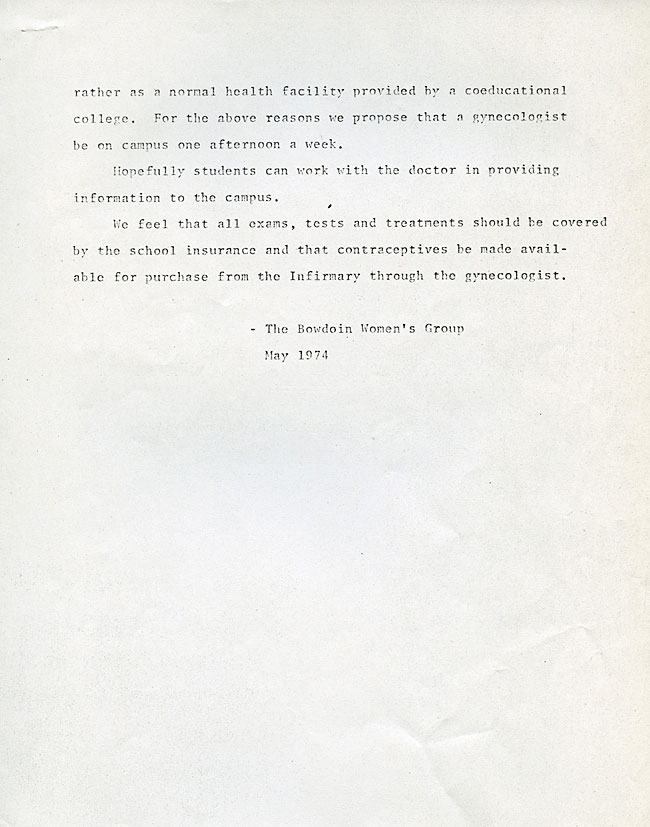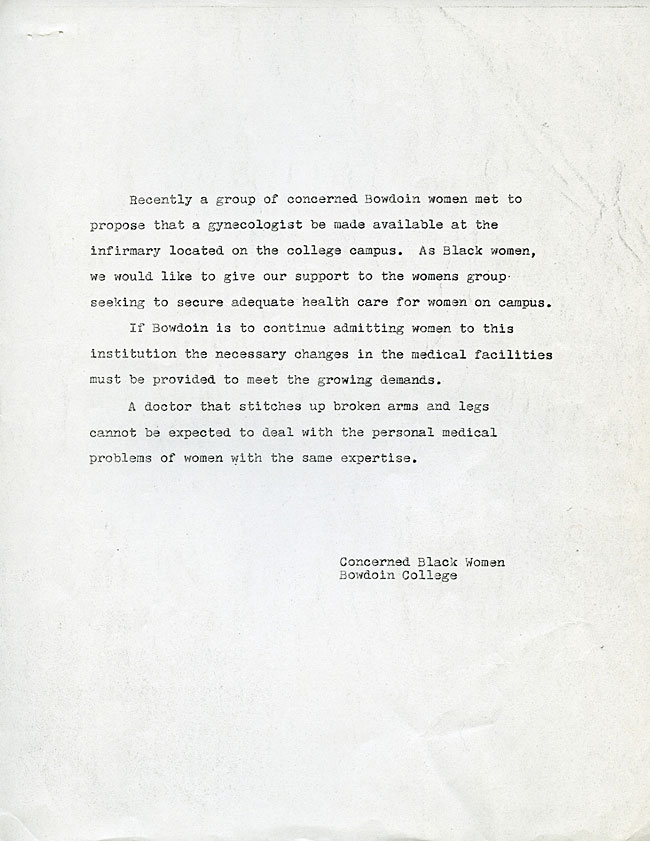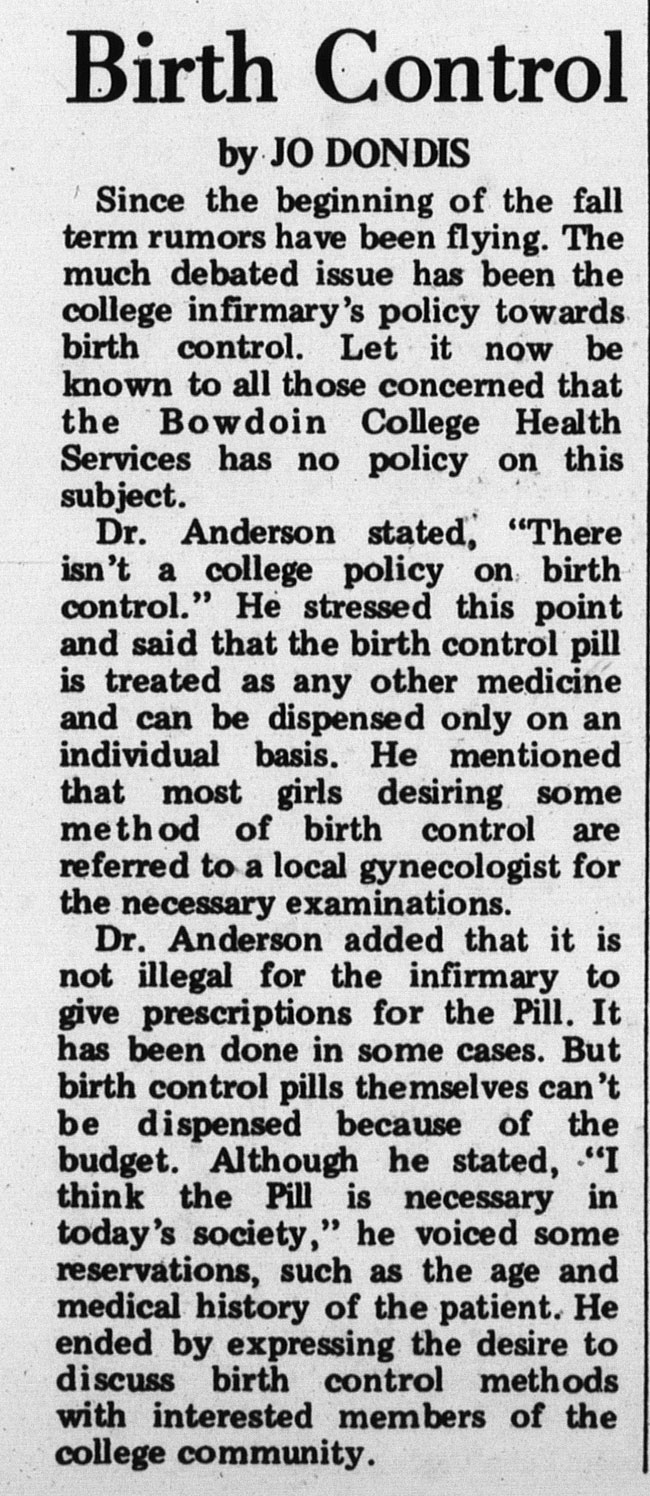Represented here are four interesting documents that all have to do with the issue of women’s health, in particular access to birth control and gynecological exams. First, a memorandum from the Ad Hoc Committee of Coeducation in 1972 addressed the fact that Bowdoin’s infirmary and counseling facilities were not equipped to deal with women’s issues (Document AK, 26.1). Moreover, the college had at this point failed to fulfill promises that women could obtain gynecological exams from the health center.
Following this discussion, the “Bowdoin Women’s Proposal on Gynecological Service” in May 1974 noted how surprising it was that Bowdoin did not have a more comprehensive health policy designed for women (Document AK, 26.2). These women claimed first that the few available health services were inadequate and male-oriented, and second, that the services were actually negligent, resulting in the misdiagnosis and failure to treat numerous gynecological problems. The women sensed a general reluctance from the infirmary staff to deal with the issue of birth control “because of their own traditional or moral values.” This “hesitancy,” they declared, was dangerous and unacceptable, and they demanded more and better health services for women. A letter from “Concerned Black Women” threw support behind this initial women’s claim, stating, “As black women, we would like to give our support to the womens group seeking to secure adequate health care for women on campus” (Document AK, 26.3).
Furthermore, a 1971 Orient article written by Jo Dondis exposed the fact that the college had no policy whatsoever with regard to birth control (Document AK, 26.4). Although in all of these cases the infirmary seemed willing to accommodate women on paper, in practice they did not deal effectively with the admission of women to the college and the special health needs this would bring. As a result, many women sought out or were referred to local clinics and gynecologists unaffiliated with Bowdoin. While this may have been adequate for some and even sanctioned by the college for others, it put an unfair strain on local clinics, as these women pointed out, and contributed to an overall sense that women did not exercise full citizenship in the Bowdoin community.
